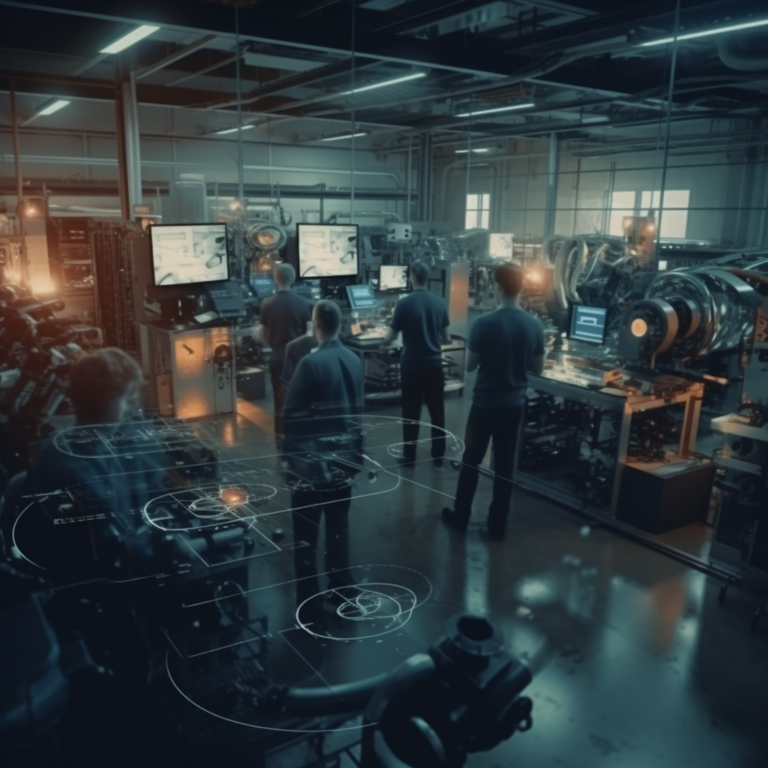In an era where Artificial Intelligence (AI) is rapidly evolving, its impact on the global workforce and society is profound and multi-dimensional. As AI reshapes industries and automates jobs, it presents ethical challenges that are critical to address. This article examines these challenges, focusing on the implications of AI-induced job displacement and the need for a cohesive response.
The Ethical Landscape of AI
The rise of AI brings with it a host of ethical considerations. From issues of bias and privacy to accountability in decision-making, the deployment of AI in various sectors necessitates a careful balance between technological advancement and ethical integrity. This balance is essential to ensure AI’s alignment with societal values and norms.
AI’s Impact Across Industries
The disruption caused by AI is sweeping across industries, affecting both white-collar and blue-collar jobs. According to Zippia, AI could make 375 million jobs obsolete over the next decade, a transformation affecting one billion people globally. In the legal field, AI’s potential to automate research and analysis tasks could significantly reduce the need for lawyers. Similarly, in logistics, autonomous vehicles pose a direct threat to truck driving jobs, one of the most common occupations in several states.
Historical Context and Industrial Revolutions
Throughout history, industrial revolutions have shifted the employment landscape. However, the AI revolution differs significantly. Unlike past technological advances, AI’s capability for rapid, widespread job automation across sectors presents a unique challenge. The speed at which AI can learn and implement solutions outpaces the creation of new job opportunities, a scenario not seen in previous industrial transformations.
The Unique Challenge of AI
AI’s ability to automate complex tasks swiftly poses a significant challenge to the job market. Zippia’s report highlights this concern, indicating that while AI could create 97 million new jobs and generate $15.7 trillion for the global economy by 2030, it still leaves approximately 300 million workers displaced. This discrepancy between job creation and displacement underscores the urgent need for ethical consideration and proactive measures.
The Regulatory Dilemma
The challenge of regulating AI extends beyond national borders, demanding a global approach. The fast-paced development of AI technologies and their cross-border nature make national regulations potentially ineffective. Current policies, including those outlined in President Biden’s Executive Order on AI, must evolve to address the global impact of AI.
The AI Tsunami: Job Displacement and Societal Impact
The potential job displacement caused by AI is not just an economic issue but a societal one. The prospect of 300 million workers being displaced globally demands a reevaluation of our social and economic structures. Ethical questions arise about how to support those affected and manage the transition in a way that minimizes harm and maximizes benefit.
The Need for a Global Framework
To address the challenges posed by AI, a global regulatory framework is necessary. This framework should aim to guide AI development in an ethically responsible manner, balancing technological progress with the protection of workers and society. International collaboration and the establishment of ethical AI standards are crucial in this endeavor.
Conclusion – The Ethical and Economic Balancing Act in the AI Era
As we ponder the transformative impact of AI, it’s important to recognize the dichotomy it presents, particularly for business owners and industry leaders. On one hand, AI offers an incredible opportunity to enhance productivity, reduce costs, and boost profits. It’s a tool that, when leveraged effectively, can propel businesses to new heights of efficiency and market dominance. For many reading this article, AI represents a frontier of untapped potential.
However, this technological advancement is not without its ethical quandaries. Executives, entrepreneurs, and industry leaders are faced with the challenge of leveraging AI ethically. The dilemma intensifies in a competitive landscape where not all players may adhere to ethical standards, using AI to aggressively drive down prices and secure market advantage, sometimes at the expense of broader societal well-being.
This tension between the economic incentives of AI and its societal impact brings us to the crux of the ethical debate around AI. How do we harness the benefits of AI while ensuring that its application does not lead to detrimental consequences for society? The answer lies in careful, thoughtful regulation.
Regulations around AI need to be crafted in a way that balances these competing interests. They must ensure that businesses can enjoy the benefits of AI, but not at the cost of creating widespread job displacement, societal inequality, or ethical breaches. This requires a nuanced approach, one that understands the complexities of AI and anticipates its far-reaching impacts.
The way forward involves a collaborative effort between governments, industry leaders, and the global community. It calls for a framework that not only promotes innovation and economic growth but also safeguards the workforce and the ethical principles that hold our society together. This delicate balancing act is the key to ensuring that the AI revolution benefits humanity as a whole, rather than a select few.
As we navigate this uncharted territory, the question remains: How will we collectively ensure that the integration of AI into our economic fabric strengthens rather than unravels the societal tapestry? The journey to answer this question will be intricate and complex, but it is one we must undertake with diligence and foresight. The ethical integration of AI into our businesses and economies is not just a possibility; it is an imperative for a sustainable and equitable future.



